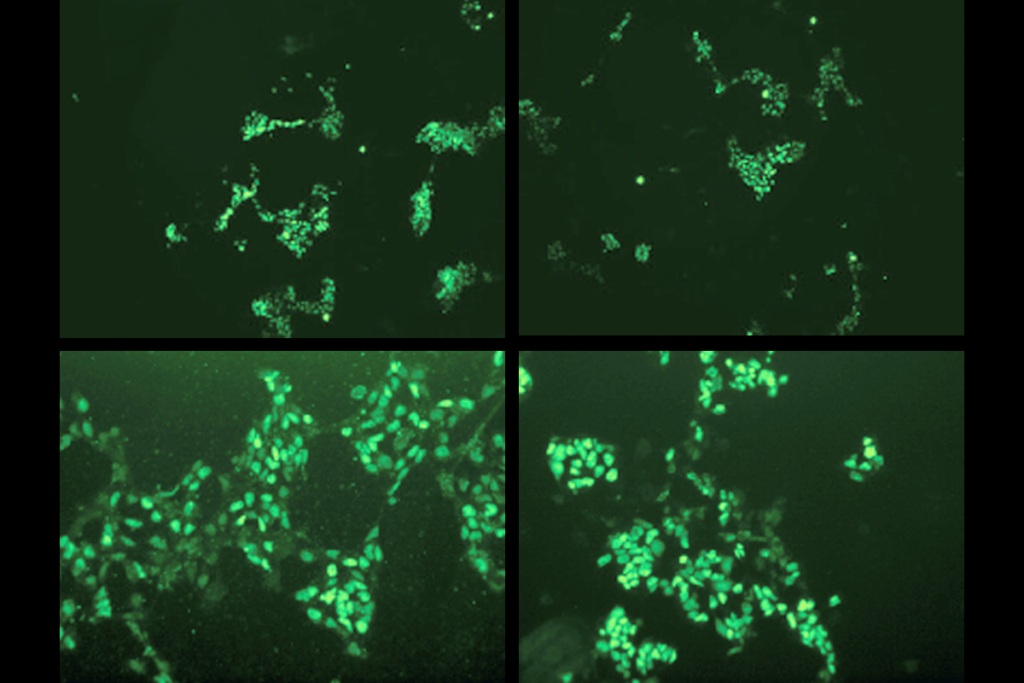Uncertainty, anxiety each independently linked to autism
Children with autism fear the unknown and react negatively when faced with unpredictable situations. This intolerance of uncertainty is closely tied to anxiety but may manifest independently.
Editor’s Note
This article was originally published 14 May 2016, based on preliminary data presented at the 2016 International Meeting for Autism Research in Baltimore, Maryland. We have updated the article following publication of the study 7 January 2018 in Autism Research1. Updates appear below in brackets.
Children with autism fear the unknown and react negatively when faced with unpredictable situations — even more so than other children, according to unpublished results presented today at the 2016 International Meeting for Autism Research in Baltimore. This intolerance of uncertainty is closely tied to anxiety but may manifest independently.
As might be expected, having anxiety can make people wary of situations they can’t control. But children with autism are more likely to be intolerant of uncertainty than their typical peers, even after researchers control for anxiety levels, the new study found.
Most studies seeking to understand intolerance of uncertainty focus on people who have high levels of anxiety, says Nicole Kreiser, a postdoctoral fellow at Kennedy Krieger Institute’s Center for Autism and Related Disorders in Baltimore, who presented the findings.
The new study suggests that intolerance of uncertainty has a relationship with autism that’s independent of anxiety and might even drive the anxiety that is common in autism.
“It’s related to anxiety, but there’s also a piece of it that’s wrapped up in autism,” Kreiser says.
Kreiser and her colleagues looked at 57 children with autism and 32 controls, from 7 to 16 years of age. The children and their parents all filled out a questionnaire called the Intolerance of Uncertainty Scale for Children, which the researchers modified to make some of the questions easier to understand — by removing idioms of speech, for example.
To assess anxiety, parents and children filled out two other questionnaires: the Screen for Childhood Anxiety Related Disorders and the Penn State Worry Questionnaire. They also completed quizzes designed to evaluate social skills, repetitive behaviors, emotion regulation and verbal reasoning and comprehension.
As a group, the children with autism scored 12 points higher on the intolerance of uncertainty scale than controls did. They also have more anxiety than controls do, a finding based on both questionnaires. As expected, children who are more intolerant of uncertainty are also more anxious, the researchers found.
The researchers then used a statistical method called hierarchical regression to look for associations between intolerance of uncertainty and other traits, after controlling for gender, age and anxiety. They found that children who score low on verbal comprehension are more afraid of uncertainty, perhaps because they must work hard to understand what to expect from certain situations.
[The researchers also found a link between intolerance of uncertainty and emotional problems. Children with autism who struggle to control their emotions are likely to be especially upset by uncertain situations or unexpected stimuli, the researchers write.]
To parse causation — whether intolerance of uncertainty drives anxiety, for example — the researchers will need to look at people over time and track when these different conditions emerge, says Kreiser.
Understanding how these pieces interact will be key to clarifying the role of anxiety in autism, says Mikle South, associate professor at Brigham Young University in Provo, Utah, who moderated the discussion during the session. “Are they all proxies for anxiety or mechanisms for anxiety?” he asked. “We have to understand how these things fit together.”
For more reports from the 2016 International Meeting for Autism Research, please click here.
References:
- Vasa R.A. et al. Autism Res. Epub ahead of print (2018) PubMed
Recommended reading

Developmental delay patterns differ with diagnosis; and more

Split gene therapy delivers promise in mice modeling Dravet syndrome

Changes in autism scores across childhood differ between girls and boys
Explore more from The Transmitter

Smell studies often use unnaturally high odor concentrations, analysis reveals

‘Natural Neuroscience: Toward a Systems Neuroscience of Natural Behaviors,’ an excerpt
